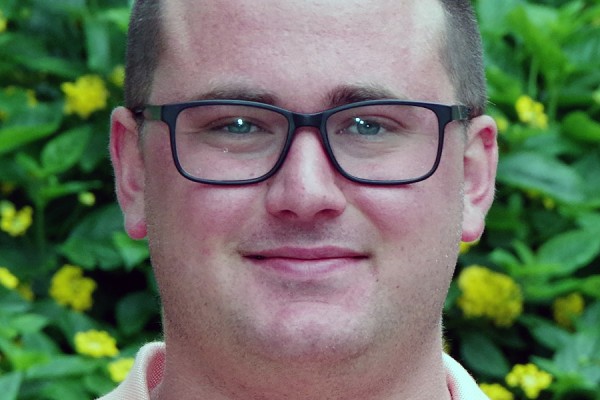 Doctoral student Aaron Bondy won plaudits for best student oral presentation at the Canadian Association of Physicists annual congress.
Doctoral student Aaron Bondy won plaudits for best student oral presentation at the Canadian Association of Physicists annual congress.
The standard model of particle physics is the discipline’s most successful theory, but it is not ultimately complete, says doctoral candidate Aaron Bondy.
His research into the nuclear process of beta decay, testing predictions under the model of how radioactivity should occur, took top honours in its division as student oral presentation at the annual congress of the Canadian Association of Physicists, held this year via teleconference.
“I tried to prepare to give a nice talk and it always feels good to get external validation,” Bondy says. “Oral presentations are something that, as a physicist, I regard as being very important and something that I have worked hard at and am working continuously on becoming better at.”
In addition to the prize for best student oral presentation in the Division of Atomic, Molecular, and Optical Physics, his work, entitled “Double atomic electron emission following the beta decay of He-6,” tied for third place overall.
Bondy’s supervisor, professor emeritus Gordon Drake, says he is “very proud” of the achievement.
“The competition was intense, with many excellent presentations from the top research universities across Canada,” says Dr. Drake. “He can feel very pleased with his research accomplishments.”
Bondy has been collaborating with experimental colleagues at the University of Washington in Seattle and the Argonne National Laboratory in Chicago. He is currently completing a six-month stay conducting research at Drake University in Des Moines, Iowa, on a Michael Smith Foreign Study scholarship awarded by the Natural Sciences and Engineering Research Council of Canada.
In addition to a cash prize, Bondy’s success at the CAP congress offers him the opportunity to submit an extended abstract to the publication Physics in Canada.
“It will give me another chance to expose my research to a wider audience,” he notes. “This is the whole point of doing science, so I am very grateful for this opportunity.”
